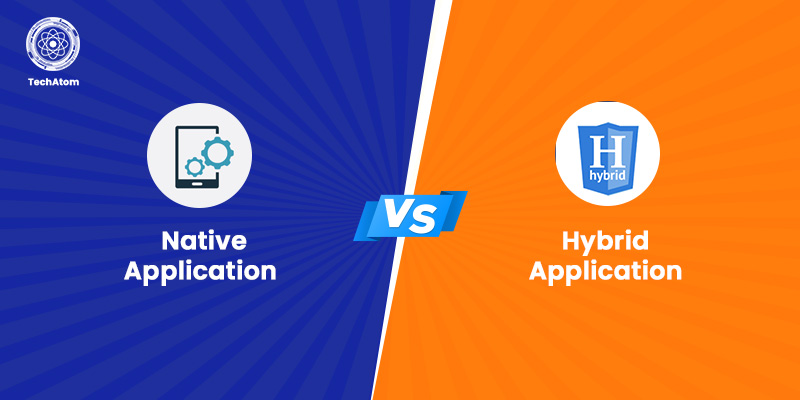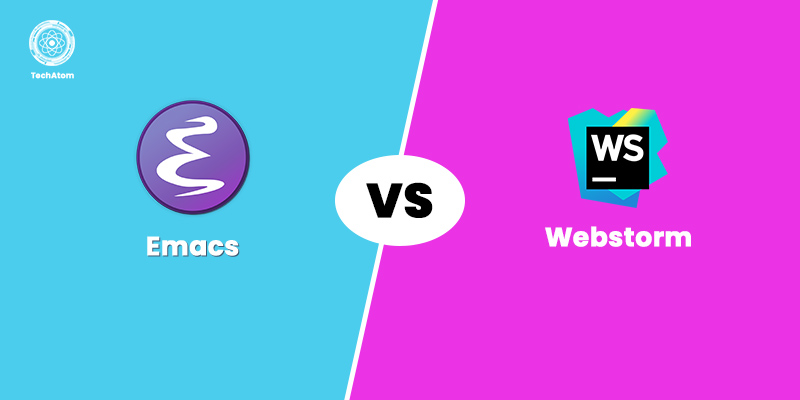Mobile application development has seen rapid growth in the last few years. As the population shifts towards more smartphone usage, mobile applications give smooth, easy, and fast access to any business or company’s services. Millions of mobile applications are available, from gaming to music, videos, streaming apps, fitness apps, business tools, e-commerce apps, and whatnot!
When it comes to native vs hybrid apps, the usage of both these apps is quite the same; however, you could use both apps differently. It is essential for businesses to identify which app to create for the users. They often get stuck in making this informed decision. For this decision, it is essential to understand the type of services and business and the goals you want to achieve.
Overall, the answer lies within the company’s priorities and factors, such as the time constraint for developing an app!
There are plenty of questions regarding native and hybrid apps, yet, the critical difference that sets native apps apart from Hybrid apps is that Native applications are solely developed for a specific device.
In this post, you will find the accurate answer based on comparing these two.
Let’s dig deeper into the contrasts and some key details of both types of applications!
What are Native Apps?
The mobile apps designed specifically for an operating system like iOS or Android usually refer to the Native applications.
Native applications are easily accessible via Google Play Store or Apple’s App Store and can be directly installed on devices. For instance, Java is used for Android apps to develop and write. At the same time, Objective-C and Swift are used to develop iPhone apps.
Hence, Native apps have advantages over Hybrid apps, as these are fast, optimized, and reliable for the user’s experience. In addition, the operating system’s SDK (Software Development Kit) is utilized to create Native apps and can likewise connect and access smartphone features such as cameras, microphones, GPS, and storage.
However, on the downside, the development and maintenance cost of native apps could be an issue for some companies. For instance, if you have developed an app for iOS or Android, it will need regular updates, which could cost you a hefty amount.
What are Hybrid Apps?
Hybrid applications come with the combined features of Native apps. You can download these from Play Store, yet Hybrid apps are also accessible from web browsers. They are written in HTML5 and JavaScript, similar to web apps.
Generally, Hybrid apps are web pages wrapped in a mobile app with the WebView. Besides, these apps also get access to the device's features. Cross-platform systems like React, Ionic, Sencha, and Xamarin are used to create these apps.
Although, the main advantage of a Hybrid app is that it is simpler to create than Native apps. Hybrid apps demand low maintenance, are faster, and are less costly to develop. Moreover, the speed of apps mainly depends upon the browser you use.
Check out: Common Mobile App Design Mistakes
Difference between Native Apps and Hybrid Apps
After getting to know about Native and Hybrid apps in detail, you must wish to know about the significant difference between both applications. Here is a list:
1. Time and Cost in Developing
Natives apps will cost you more from the development to the maintenance part. As native apps are used for a specific Operating system, this would require new releases and updates for security fixes and other updates and more money.
On the other hand, Hybrid apps are like one-time investments with less development cost.
2. User Experience
Native apps are primarily designed for a particular operating system; thus, they offer the best user experience in the long run. Moreover, they also fully utilize a device’s hardware capabilities and adapt the screen size for the best experience.
Whereas a single code base is used to develop Hybrid apps for numerous platforms. This aspect makes Hybrid apps less user-friendly, as every device has its configuration and adaptability to apps. Yet, you can also access Hybrid apps on different devices via a web browser.
3. Free or Paid App
Since most businesses and companies choose to use Native applications for specific operating platforms with the best user experiences, they charge users to use Native apps, or sometimes certain features of apps are paid for.
Hybrid apps don't need maintenance, are developed efficiently, and require no updates. These apps are usually free to use yet lag a bit in providing an excellent user experience.
4. Availability of Developers
Since Hybrid apps are made for different platforms, and not particularly for a single platform, it is pretty easy to develop these apps with existing coding skills such as Java, HTML, or CSS.
Whereas native apps are developed for a specific platform, and thus, it needs more experienced developers in a particular language to develop apps for the platform. It could cost more companies.
5. Distribution of Apps
Companies choose Native apps to make them available via app stores of specific mobile operating systems. Thus, developing a mobile application would make sense in such a case.
However, Hybrid apps are mobile-optimized web applications that users can access from the Google Play Store and the web browser.
6. Platform for App
Suppose a company launches its application for platforms such as iOs, Android, and Windows. It could be wise to create Hybrid apps, as it takes less time, and you need to make only one app with a single coding base for all platforms.
Although Native apps are for a specific operation, thus, for different platforms, you need to develop apps separately.
Advantages and Disadvantages of Native and Hybrid Apps
Differences in Native and Hybrid apps are sufficient for a company or startup business to choose the respective app. However, before that, it is recommended to check the advantages and disadvantages of both types of apps.
Native Applications
Advantages
- Native apps have numerous features as they use specific devices and leverage their potential.
- You can get faster software responses from native apps.
- Native apps come with the push notification feature.
- The user interface of apps highly matches the operating system.
- One can be assured about its quality, reliability, and usability by checking the app's ratings before downloading.
Disadvantages
- Developing a Native app requires coding expertise on different platforms. As for each device and platform, the development codebase would be different.
- Native app development demands the most investment, as for different code bases, developers are required to build and maintain new releases of apps.
- Due to multiple fabrications for each platform and feature updates, native apps demand more time.
Hybrid Applications
Advantages
- Hybrid apps can function without internet connectivity.
- Hybrid applications can be used on various platforms, including Android, iOS, and Windows, as they have a single code base. Its user interface also works the same on all operating systems.
- Since a single code base is required for hybrid apps, they are more accessible and fast to develop. Moreover, they don’t need frequent maintenance or updates.
- Most importantly, hybrid apps' single code base development also cuts the development cost.
Disadvantages
- Hybrid apps can work without an internet connection. Yet, you would need uninterrupted internet connectivity to work on the full potential of apps and utilize all features.
- To access the inbuilt features, one needs to use specific plugins due to the architecture of Hybrid apps.
- Hybrid apps comprise the Android and iOS platforms’ interface. Thus, you can't expect a smooth and excellent user experience like native apps. Some of the Android features and some of the iOS could be compromised in such a situation.
- There is a minor contradiction in the Hybrid apps. The native app creator needs to develop the Hybrid app, as the Hybrid app’s development doesn’t fix issues related to fundamental features.
Which App to Choose for Your Startups?
Understanding the difference between both apps would help you choose the right option. Native and Hybrid applications come with their specific qualities and shortcomings. In such a case, your ultimate choice will rely predominantly upon your startup's requirements.
After examining your needs and options, you must also work with application developers to change your ideas into reality with less investment. To run and test, you can also outsource the app without employing in-house staff. Outsourcing developer is a decent method for application development tasks to feel like a natural transition.
Check out: Best Startup Ideas
Conclusion
In conclusion, Native and Hybrid apps have their benefits and downsides. Settling on what sort of application to choose depends on the need and requirements of an organization or business.
Subsequently, to examine the business specifications, it would be great to approach the application developer, who might help to choose the best option and will also assist in giving a different approach to your ideas.
We hope this post on native vs hybrid apps helps solve your queries.
People are also reading:
- How to become a web developer?
- Agile Project Management Tools
- Guide to Web Development
- What is Web Designing?
- WordPress vs Web Development
- Quillbot vs Grammarly
- How to Become a Project Manager?
- Great Ideas for Small Business
- What is Digital Marketing?
- Difference Between UI, UX, and Web Designer
Frequently Asked Questions
1. Why are hybrid apps slower than native apps?
Hybrid apps are not as fast as native apps. The architecture contains additional layers between the mobile platform and the source code. This, in turn, slows down the speed.
2. Can hybrid apps work offline?
Yes, hybrid apps can work without an internet connection.
3. How do you identify if an app is hybrid or native?
Hybrid apps are built for more than one operating system. Whereas native apps run on a single operating system.
4. Which language is best for hybrid app development?
Java is the most preferred language for Android app development, and Swift is for iOS apps.
5. Why are native apps faster?
Native apps are faster as they are specifically built for a single platform.



